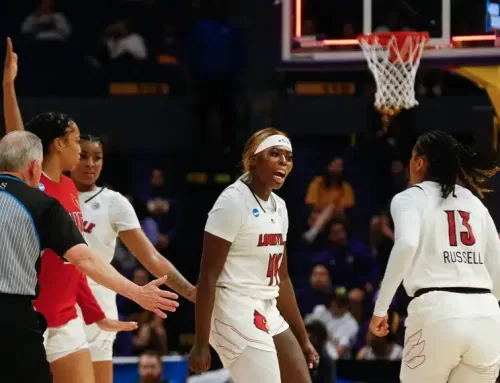By Eiman Zuberi–
The University of Louisville may be the first Kentucky college to commit to the Real Food Challenge, and the RFC team is looking for U of L students to make it happen.
The Real Food Challenge is a national student organization that strives to shift dining purchases to more sustainable choices.
U of L’s dining services are currently provided by Sodexo. The program is working to help get better food to campus as a competitive partnership. Sodexo has agreed to be a part of the movement, but there’s still a lot of work to do. U of L has to sign off on the campus commitment, so for the time being, that is the goal of the RFC. RFC officials hope to have the University’s signature by Oct. 24, which happens to also be National Food Day.
So far, 19 schools have agreed to commit to the challenge. None of those schools are in Kentucky.
The RFC is not just about healthy eating on campus. According to Jeneen Wiche, part-time lecturer who oversees independent studies of the RFC it’s also a consciousness. She wants you to question where your food came from.
“It could be an organic apple, but picked by slave labor,” said Wiche.
Part of the challenge is only getting nutritious food from local farms that you know treat their workers right. The RFC believes in human rights. “Food can make or break a community; it all has a backstory,” stated Wiche. One goal of the RFC is to find out where that food came from.
If U of L gets involved in this campaign, they will be committed to the Real Food Challenge. That’s where students like Laura Buckingham come in. As a student doing her own independent studies of the RFC, she works with the RFC Calculator, which tracks progress of the RFC.
Buckingham mentioned how important it is for other students to get involved because so their voices are heard. Black explained that now was the best time to get involved. “As students, you’re not committed to a full-time job. You can fully participate in change and growth,” explained Buckingham.
According to Buckingham, it affects the culture; once it’s a part of you, it will stay on your mind. It has even been applied to her business, a bakery in downtown New Albany. Anyone who learns about RFC becomes passionate about it. “We’re people in Kentucky, helping those in other parts of Kentucky,” Black concluded.
There is still a lot of work to do before real food can be brought on campus. Aside from getting that final signature, RFC also needs students to get involved. The committee wants the students of U of L to be aware of what kinds of food they are eating and where it came from. After all, “food is not an inconvenient thing,” says Wiche. “It keeps us alive and well. RFC highlights food in a different sort of way.” The goal is to have the RFC purchase 20 percent of campus food mostly local by 2020.
Wiche is trying to encourage sudents to work together to make an impact on their health, the environment and the economy.
“Once you learn about these things, you can’t forget about them,” said Wiche.
If you’re interested, please email Carmen Black, regional coordinator for the RFC at [email protected]. Keep an eye out for a RFC event taking place this semester, and another later during the year.
Image courtesy Oxy.edu





